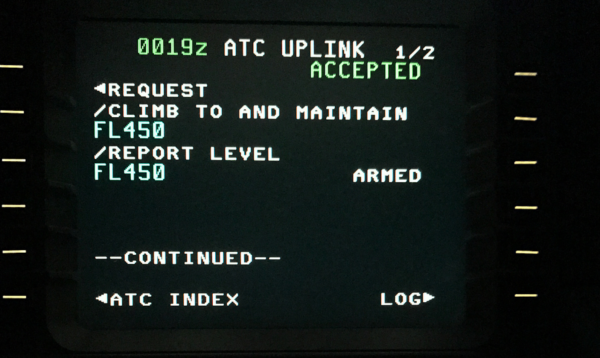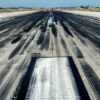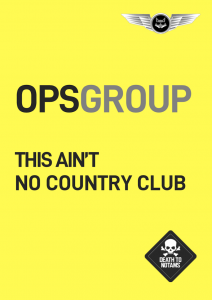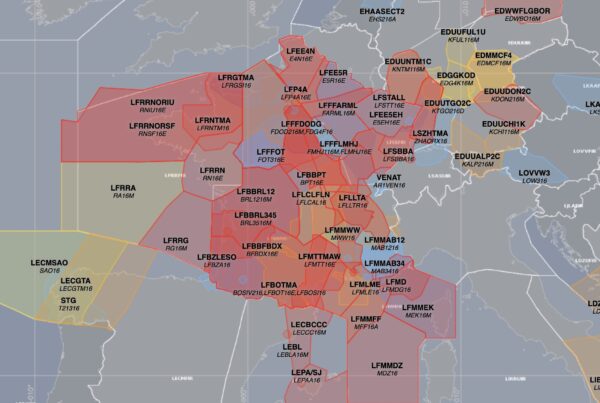Aircraft Operators using the Iridium Satellite service for ATC comms should be aware of an equipment issue that has prompted a ban by a number of Oceanic ATC agencies in the last few days
Right now, Chile (SCIZ), Japan (RJJJ), Anchorage (PAZA), Oakland (KZAK), New York (KZNY and KZWY) have all told operators not to use Iridium for CPDLC or ADS-C. Until the fault is fixed, in those regions you’ll have to either use HF for ATC comms, or use another SAT provider. Auckland (NZZO) and Brazil (Atlantico SBAO) have so far only applied the ban to CPDLC alone. Nothing has been published yet by Gander (CZQX), Shanwick (EGGX), Reykjavik (BIRD) or Santa Maria (LPPO) – although we’re keeping a close eye on them for any update.
Here’s what happened:
On Sep 12th, an Alaskan Airlines flight had a failure of their CMU (Comms Management Unit) that caused the Iridium connection to stop working. An ATC message was sent to the aircraft but not delivered. On the next flight, the CMU power was reset and corrected the issue, and the pending message was delivered. The CMU did not recognise the message as being old, and so it was presented to the Flight Crew as a control instruction. FSB understands that this aircraft took the climb instruction and executed the level change, climbing 1000 feet .
Another flight, operated by Hawaiian out of Oakland, had a similar problem. This aircraft had both Iridium and Inmarsat on board, and during the flight switched over to Inmarsat as the provider. An ATC message was routed via Iridium, but didn’t reach the aircraft before the switch. Some 23 hours later, on the next flight, Iridium was activated again and again the ATC message presented as a “live” instruction. On this occasion, the crew queried the instruction and did not climb.
The problem in simple terms is that if ATC sends a CPDLC message like “Climb FL370“, which is obviously only valid for “right now”, but another crew gets the message hours later, then you have a very high risk of the new crew accepting that and climbing.
For now, Iridium has a plan to fix the ground side to not allow older SBD messages to be delivered, and they say they are testing it at the moment and expect to release it soon.
OpsGroup members will be updated directly on further news.
Notam copies below:
ANCHORAGE PAZA A0626/17 - USE OF CPDLC AND ADS-C VIA IRIDIUM SATCOM IS PROHIBITED WITHIN THE ANCHORAGE OCEANIC, DOMESTIC AND ARCTIC FLIGHT INFORMATION REGIONS (FIRS). SFC - UNL, 13 OCT 19:40 2017 UNTIL 13 NOV 00:00 2017 ESTIMATED. CREATED: 13 OCT 19:35 2017
NEW ZEALAND AUCKLAND NZZO B4985/17 - USE OF CPDLC (DATALINK) VIA IRIDIUM SATCOM IS PROHIBITED WI NZZO FIR. COMMUNICATION WI NZZO FIR IS TO BE VIA HF RDO ON THE APPROPRIATE SP6 FREQ. OPERATORS USING IRIDIUM SATCOM MAY CONTINUE TO USE ADS-C FOR POSITION REPORTING WI NZZO FIR. HF VOICE POSITION REPORTS ARE NOT REQUIRED UNLESS SPECIFICALLY REQUESTED. 08 OCT 21:56 2017 UNTIL 08 JAN 21:00 2018 ESTIMATED. CREATED: 08 OCT 21:56 2017
OAKLAND KZAK A4306/17 - FOR ACFT EQUIPPED WITH IRIDIUM SATCOM, USE OF CPDLC AND ADS-C VIA IRIDIUM SATCOM IS PROHIBITED WITHIN OAKLAND CENTER OCEANIC AIRSPACE. COMMUNINCATION WITH KZAK MUST BE VIA HF FOR IRIDIUM USERS. 13 OCT 19:49 2017 UNTIL 31 DEC 23:59 2017. CREATED: 13 OCT 19:54 2017
NEW YORK KZNY A0334/17 - USE OF CPDLC AND ADS-C VIA IRIDIUM SATCOM IS PROHIBITED WITHIN NEW YORK CENTER OCEANIC AIRSPACE. 13 OCT 19:27 2017 UNTIL 30 DEC 08:00 2017. CREATED: 13 OCT 19:38 2017
NEW YORK KZWY A0502/17 - USE OF CPDLC AND ADS-C VIA IRIDIUM SATCOM IS PROHIBITED WITHIN NEW YORK CENTER OCEANIC AIRSPACE. 13 OCT 19:27 2017 UNTIL 30 DEC 08:00 2017. CREATED:13 OCT 19:36 2017
BRAZIL ATLANTICO SBAO N0095/17 - FOR ACFT EQUIPPED WITH IRIDIUM SATCOM, USE OF CPDLC IS PROHIBITED WITHIN ATLANTICO CENTER OCEANIC AIRSPACE. FLIGHT CREWS CAN LOG ON SBAO TO ALLOW THE USE OF ADS-C FOR POSITION REPORTING. COMMUNICATION WITH SBAO MUST BE VIA HF. IF USING ADS-C POSITION REPORTING, HF VOICE POSITION REPORTS ARE NOT REQUIRED UNLESS SPECIFICALLY REQUESTED. 15 OCT 12:00 2017 UNTIL 13 JAN 12:00 2018. CREATED: 15 OCT 01:22 2017
JAPAN FUKUOKA RJJJ J7236/17 - FOR ACFT EQUIPPED WITH IRIDIUM SATCOM, USE OF CPDLC AND ADS-C VIA IRIDIUM SATCOM IS PROHIBITED WITHIN FUKUOKA OCEANIC AIRSPACE. COMMUNINCATION WITH RJJJ MUST BE VIA HF FOR IRIDIUM USERS. 16 OCT 10:08 2017 UNTIL UFN. CREATED: 16 OCT 10:09 2017
More on the topic:
- More: Datalink in Europe: What Are The Rules?
- More: US Domestic Enroute CPDLC Update
- More: The North Atlantic Datalink Mandate – 2024 update
- More: US expands CPDLC coast-to-coast
- More: CPDLC Gotcha: Clearance Busts
More reading:
- Latest: FAA Warns on Runway Length Data and Overrun Risk
- Latest: EASA’s New Cyber and Data Risk Rule for Operators in Europe
- Latest: Airport Spy: Real World Reports from Crews
- Safe Airspace: Risk Database
- Weekly Ops Bulletin: Subscribe
- Membership plans: Why join OPSGROUP?











 Get the famous weekly
Get the famous weekly 





Thanks everyone for flagging the need for updates! Have done so now 🙂
Add RJJJ to the list of oceanic airspace there Iridium is not allowed…..
Seriously? Any system using asynchronous text communication needs a DTG (date/time group) so you know when the message was sent. Learned this long ago in the military. In fact, the text function on your phone does this. Knowing the age of the message allows you to determine if it still applies or should be used ignored.
The NOTAM were updated today, adding ADS-C on the prohibition.
^ The NOTAM specifies that flight crew can continue to logon to these regions to establish an ADS contract but that CPDLC messaging is prohibited.
The article seems to miss some details from a correlation perspective.
1. SATCOM systems is only a pass through for CPDLC/ACARS messages.
2. Data validation is not performed by SATCOM system [Note: SATCOM systems are DAL-D] – the CMU is responsible for checking the validity of the data (CPDLC/ACARS).
3. Power cycling the CMU does not provide information on when the actual data was received and if it was held in by the CMU when it was in a failed mode.
Could you provide more information on what the assessment was on the CMU and what the investigators, if any, found to be the root cause?
Finally, the phrase “In the interim, either just use Iridium for ADS-C (which is OK), and HF for ATC comms, or use another Sat provider” is there some notification (TFRs etc.) from ATC or FAA to substantiate this directive?